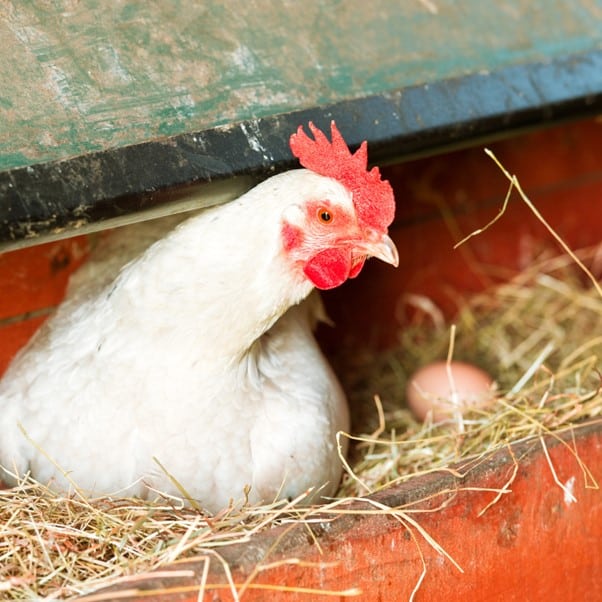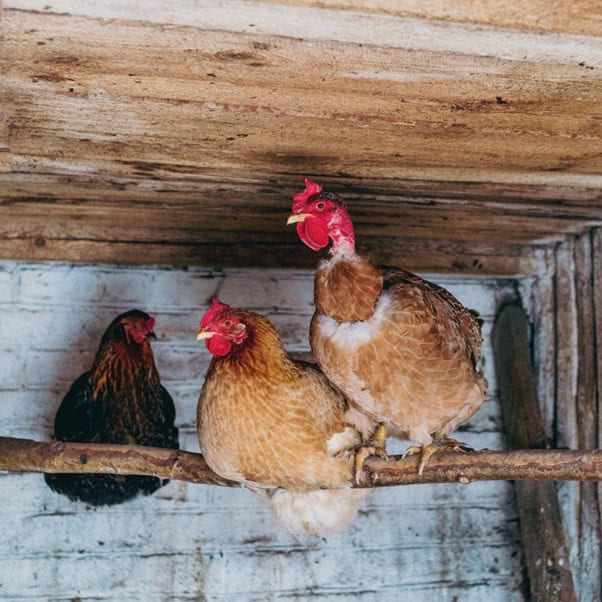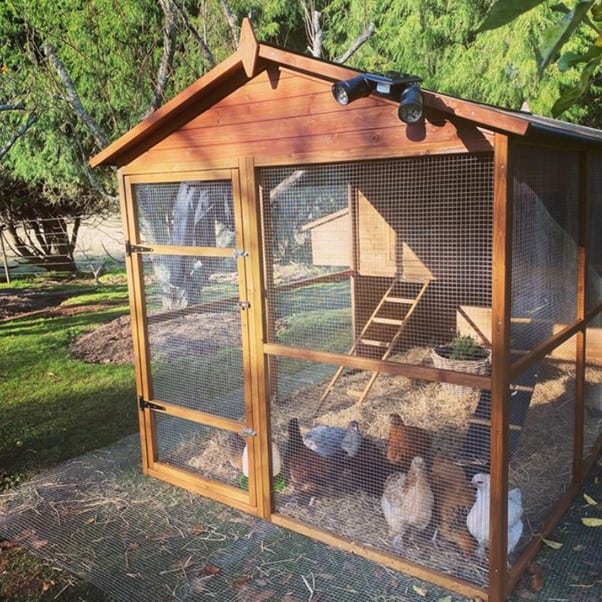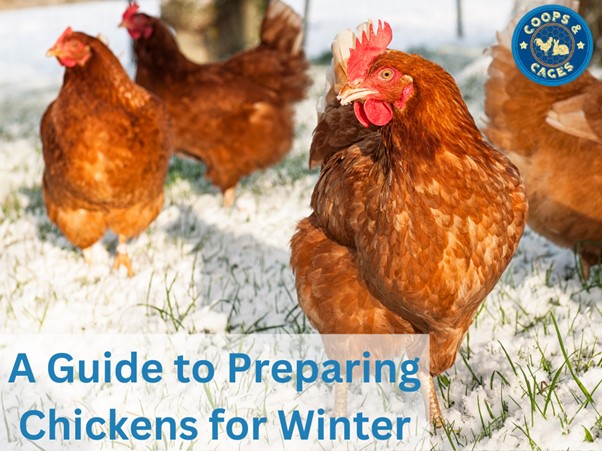Chickens, How To Do Things
A Guide to Preparing Chickens for Winter
As the days become shorter and the temperatures begin to drop, it is important to remember your chickens have special requirements too.
Although milder than a lot of other countries, the winter months in Australia from June to August can get quite cold. To keep our bodies warm, we wear warm layers of clothing and use heat in our homes. However, our feathered friends require a different kind of care.
In preparation for the winter season, there are several things you can do to ensure your flock stays warm throughout those cold months.
Check The Coops Structure
Checking the coop structure for any large cracks, gaps, or holes where large amounts of cold air could get in is vital in keeping your chickens protected from the harsh winter elements.
Ensure there are no holes in the roof where cold rain or snow can come through. Check the functionality of any sliding windows, doors, and locks to make sure they are in good working order.
If you notice any broken or damaged parts in a chicken coop, it is important to make repairs straight away.
Be mindful that the coop should not be airtight, chickens produce moisture and if there is no way for it to get out, there is a possibility of creating damp conditions inside the coop that could lead to respiratory diseases.
Having vents placed high above your chickens will allow functional airflow whilst keeping cold drafts away from your chickens.
Provide Warm Bedding
Increase the amount of bedding used inside the coop area, especially in the roosting and nesting areas. Straw and hemp bedding are my top choices as they provide excellent insulation for your chickens.
If you don’t already, you may want to consider using the deep litter method.
The deep litter method involves adding layers of fresh bedding material on top of the existing bedding. Over time the microbial activity in the older layers starts to break the bedding down which in turn generates heat.
Not only does the deep litter method help to create warmth, but it is also great at absorbing moisture which is vital in chicken coops, especially during the cold winter months.

Modify Diet
Much like humans, chickens naturally eat more during the winter months. It is a good idea to adjust their diet to ensure they are getting more calories and nutrients to help them stay warm.
Change their feed to a higher calorie feed or add in additional snacks and treats such as corn. Feeding these treats at bedtime helps their bodies to create heat during digestion and keep them warm overnight.
Constantly Check Their Water Supply
It is a fact that chickens are made of approximately 65% water. With this in mind, you would probably have an idea of how important water is for your girls.
Like humans, chickens need more water than feed. If they do not have access to a clean and fresh water supply even just for a couple of hours, it can affect their productivity for days. A limited water supply may result in problems with digestion as well as cause dehydration.
It is crucial to regularly check your chicken’s water supply during winter.
In colder areas of Australia, it is possible for the water supply to freeze. As fresh water is crucial for chicken’s health you must monitor this closely.
Placing the water supply in a warm or sunny area can help to delay the freezing process.
Provide Enough Roosting Poles
Supplying adequate roosting poles in your chicken coop for your flock is vital, even more so during the cold winter months. Roosting poles and perches allow your chickens to place themselves up off the cold floor and other cold surfaces.
When chickens perch close together they can also share body heat, creating their own internal heating system and a warm and cosy coop for the entire flock.

Protect Against Predators And Pests
Common chicken coop predators, like foxes, tend to be more active during winter due to a shortage in their typical food sources.
It is a good idea to ensure your chicken coop is protected against predators. There are a few simple ways of doing this:
- Close The Coop At Night- Most predators are nocturnal, so all chickens must be securely locked inside the coop at night time.
- Install Motion Activated Sensors- Install lights that are activated by movement. This will startle predators and scare them away.
- Create A Barrier Around The Coop- Predators such as foxes usually try to gain access to enclosures by digging the ground. Use wire mesh or pavers to create skirting around the perimeter of your coop to prevent them from digging in.
- Trim Vegetation- Cut back any bushes or vegetation around the coop area to prevent hiding spots for predators and other pests.
- Secure Chicken Feed- Store chicken feed in secure air-tight containers away from the coop. Consider using an automatic treadle feeder for your flocks food inside the coop to protect from mice and rats as well as deterring foxes and other animals.

Jordan’s Wrap
Preparing your chickens for winter is essential to ensure their well-being and safety during the colder winter months.
By making sure they have a safe and secure shelter, adding in extra bedding, increasing their calorie intake, and taking steps to protect against predators you can ensure your chickens thrive through the winter months.
Don’t forget to keep an eye on your flock and make adjustments as needed to keep them happy and warm.



